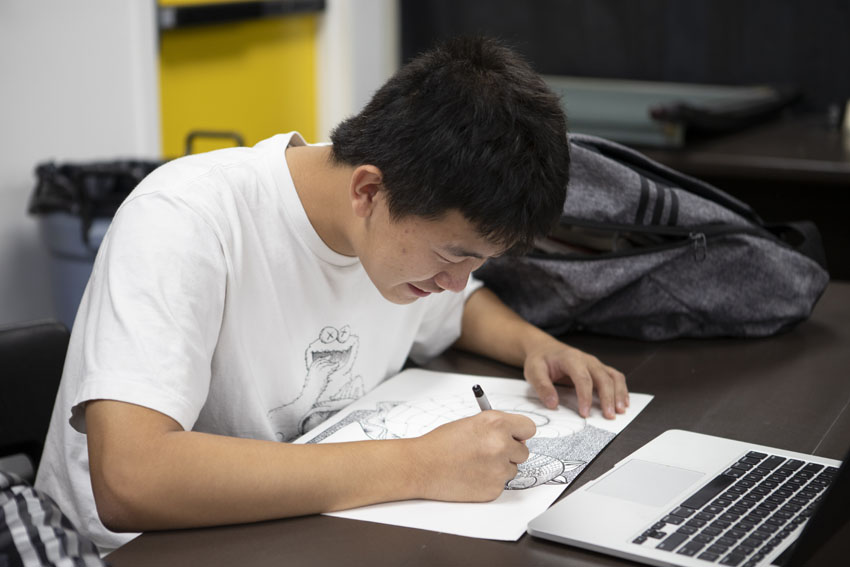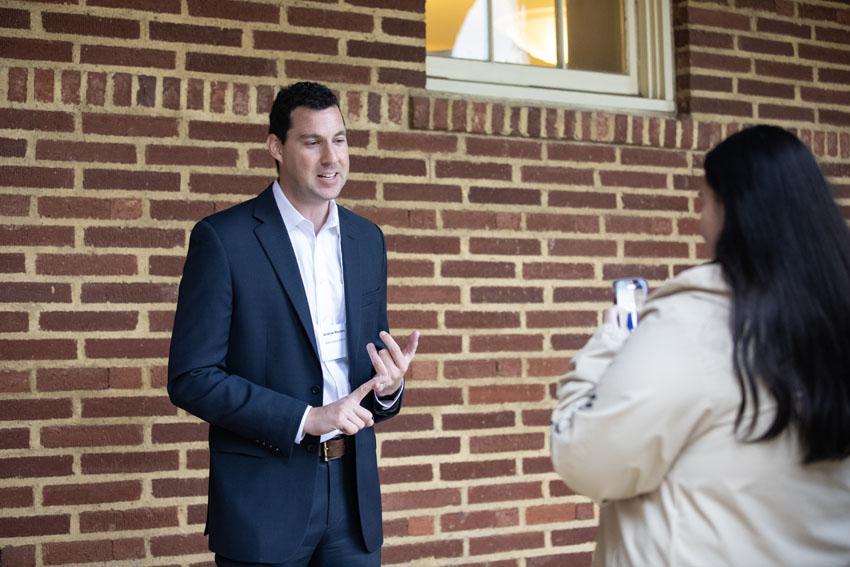Luke Wu explains Chinese education system, schooling methods

There is a saying in China: “When you get into college, you are free to do whatever you want.” However, there are consequences to every action. And that means completing assignments on time and at a high level before college.
China has the world’s largest population, four times more than the US has. So the competition in education is also much more competitive.
Chinese education is very different than American. In the United States, education and college admissions use a holistic application review process, where US schools are about not only GPA, but also volunteering, social experience and teacher recommendations. Yet colleges in China only care about one thing: test scores.
There are two tests in China called High School Entry Test and College Entry Test.
Based on that educational situation, all 12 years of studying from primary school to high school are preparing for the exams. If the students fail the test, colleges will not accept them.
In my public primary school experience, each classroom had up 85 students, all studying together. While the core classes are most important to Chinese administration, often the students do not take the minor classes like P.E. every week, even though it is on the schedule.
There is also a joke amongst students in China: “The P.E. teacher is sick again.” However, the students know this is not really the case.
In Chinese schools, courses are divided by main courses which are math, Chinese, English and minor courses like music, P.E. or art. The students do not change their classroom during the day. So teachers always travel to classrooms for each main course and often take away the P.E. periods so there is more time to study core classes. When this happens, the students are told that the P.E. teacher is sick today.

Morning reading is a task that the teachers require students to do every day. About half an hour before the bell rings, they just sit in their classrooms and read school books about Chinese poems the teacher assigned the day before. Each day, students take turns reading the poem out loud even when the teacher is not at school yet.
The Chinese school schedule is from 7:40 a.m – 6 p.m. However, because of the morning reading, we need to be at school before 7:10. My home is half an hour from school, so I woke up at about 6:20 a.m. everyday and took buses to school.
After school ends at 6 p.m., we need to go to the after-school classes. Because of the competition between students, we needed to learn more than others so we would win. Sometimes students review just regular schools classes like math. Sometimes they can be interesting classes like calligraphy, painting or dancing. For me, I had math classes using an abacus, a very old calculation tool, as well as an interest in English classes.
Do not think it is time to go home and relax after all this fatigue. Students must complete homework and it always takes about one to two hours at home. I only have about six hours to sleep by the end of the day.
Classes have levels and the good students go to the higher level of class. The way to divide students is also through monthly testing. Based on the score, students move to different classes each month. The highest level class is called the Rocket Class.
In my school, the Rocket Class teachers specifically teach those students. I was in that class for one month. The difference between that class and normal class is we have more assignments. It looks like the students in that level of class only know to study and nothing else.
Parents always get frustrated about us if we don’t get into that class. They will force us to do more to make in that level of class.

The internet is always considered the largest problem for students in terms of doing well at school. We are never allowed to bring cellphones to school and the school permits teachers to keep, or even throw and break them when they find student phones. Parents never allow students to play computer games at home.
My school had a special box in classrooms. That box is for phones; you need to put your phone in there if you had to bring a phone to school to connect parents. The phones cannot be a smart phone.
If you do not put it in the box or use it during class or operate a smartphone, teachers can take the phone away for an entire semester and then give it back to parents. If you get caught for using a cell phone a few times, the teacher will put it under water so the phone cannot be used anymore.
As a result of a closed environment, some people are seeing business opportunities, so they build internet bars around schools. Although it is illegal, sometimes students go there to play computer games at lunch time with permission from the owners. Teachers have been known to go to the internet bar before lunch time and wait to catch students from school. If students are caught, the consequences are severe.
After six years of primary school with a strict pattern of study, students are ready to attend junior high school and even more difficult study years ahead.
I attended one of the best junior high schools in China. The first difference is students are required to attend school on weekends. We needed to go to school six and a half days a week.
Luckily, my home is near my school, so I did not need to wake up so early each day.

Four more main courses are required in junior school: history, politics, chemistry and physics. These courses are added because students need to know the information for entrance to high school. The pressure continues to rise because more courses to study means even longer days at school. Students stay at junior high until 7:30 p.m. each day.
During junior high, my school always learned way faster than the other schools so that we pre-learn the stuff for next year. In China, junior high takes three years of study (7-9th grade); high school is the next three years.
The last year of junior high is a review year; students go over all the knowledge they have learned the first two years and complete a mock exam after one round of review. I did the review 12 times and we only had seven days for break during Chinese New Year. Other, lower level schools take one month for Chinese New Year.
All of us are ready to take the test at the end of eighth grade, while the other students in other schools are still learning what we learned a year ago. However, the pressure for students in my school to advance to one of the top three high schools in China is difficult to manage.
And that is the reason why our school does so well on the high school entrance test.
However, instead of attending a top three high school in China, I came to the United States for high school to be a better English speaker and to explore education in a foreign country.
I still keep in touch with my Chinese friends who are in one of the best high schools in China. I know school is difficult for them as well, but I also continue to be challenged to learn in a difficult situation.
For Luke Wu’s first article, read COLUMN: New world challenges, culture shock drive new resolve, pt. 1. For another column, read COLUMN: Feather staffers reminisce summer 2019 missions trip.
Luke Wu can be reached via email.








Brooke Stobbe • Oct 23, 2019 at 1:03 pm
I can’t imagine trying to grow up and learn about myself and the world around me with so much pressure on my academics. It’s such a different experience, and it’s so important for us here to understand where you’re coming from, and hear your experiences. We all share our academic world with you every day, so it’s nice for you to share in return! Thank you, Luke!
Braden Bell • Oct 15, 2019 at 11:21 am
Incredible job Luke! Thank you for sharing your stories from school, it’s so interesting to compare the schools in China to the ones at home. Looking forward to reading your next pieces!